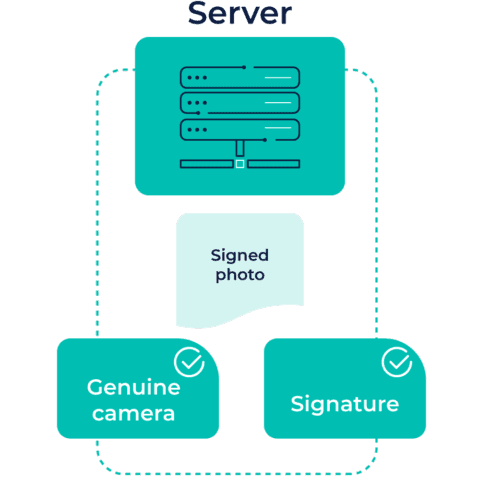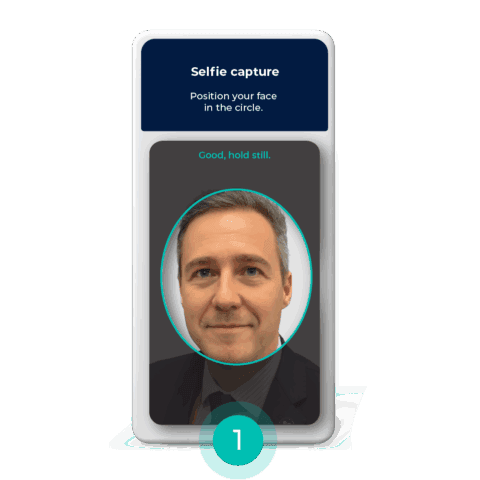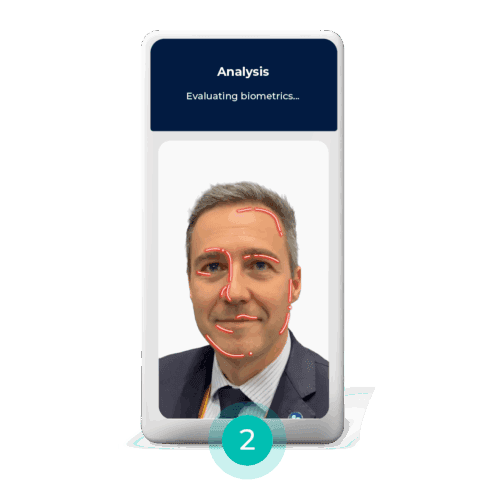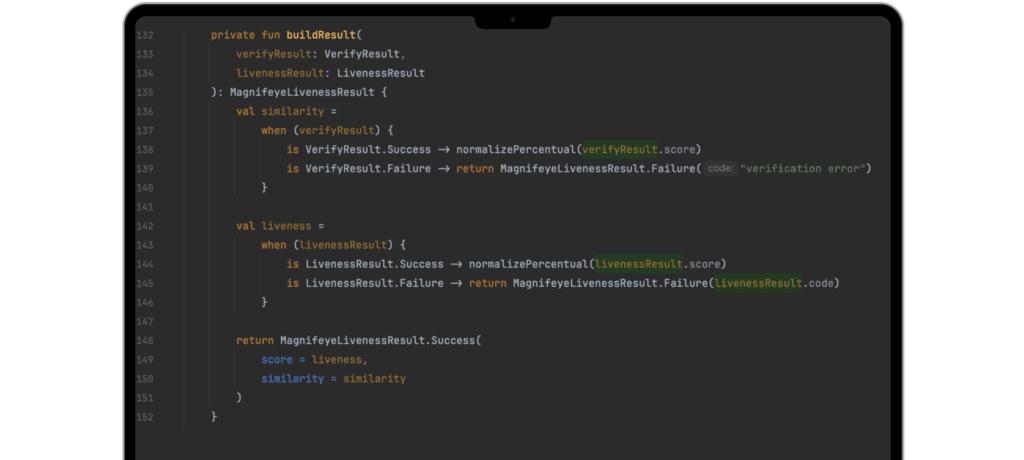Capture & Encrypt
Our client-side component collects camera information and video frames. All data is encrypted immediately to prevent tampering.
Our AI-based technology combines real-time detection of both video injection attacks and AI-generated deepfakes, ensuring your remote identity verification processes stay ahead of fraudsters.
Talk to a specialistis the fastest-growing form of identity fraud worldwide. It happens when fraudsters blend real and fabricated personal data to create a completely new identity. With the latest AI tools, these fake identities become more sophisticated and harder to detect.
make the problem worse. AI-generated videos and images can impersonate real people or invent new ones, looking completely authentic to the human eye. Liveness detection algorithms typically are not trained to spot them.
take the deception a step further. To gain unauthorized access to information or services, attackers inject pre-recorded or manipulated video feeds directly into the verification process. These attacks are easily scalable and often go unnoticed until damage is done.


Fraudsters now mix synthetic identities, deepfakes, and video injection to bypass security checks and commit fraud at scale. Together, these techniques pose a serious challenge to remote identity verification.
That’s why organizations today need a multi-layered defense: liveness detection to confirm real presence, deepfake detection to expose AI-generated content, and video injection detection to verify the authenticity of the camera feed. Only by combining all three can you stay ahead of fraudsters.
At Innovatrics, we believe that deepfake detection and video injection prevention work best together. Combined with liveness detection, we have developed a multi-layer approach that blocks the most sophisticated fraudulent attempts.
Innovatrics’ video injection detection blocks attacks at the source. It covers all known attack angles, such as the injection of deepfake videos or photos, camera stream emulation, and network tampering. By authenticating the camera feed itself, we guarantee that only genuine, live video is used in the identity verification process.

Our client-side component collects camera information and video frames. All data is encrypted immediately to prevent tampering.

The encrypted feed is sent to our backend, protected against tampering.

Our algorithms confirm the video comes from a genuine camera. Any trace of video injection, replay, or man-in-the-middle attack is immediately flagged.

Only verified camera streams continue through onboarding. Suspicious sessions are stopped, preventing fraudulent accounts before they’re created.
Ensures the right (and real) person is verified, blocking identity fraud before it happens.
Detection runs in the background of the identity verification, adding no extra friction for users.
The technology integrates via API or mobile & web SDKs and does not require any special hardware.
Our stand-alone deepfake detection models are trained to spot AI-generated faces and face swaps by analyzing the invisible “noise” patterns unique to synthetic images. Highly recommended, especially when video injection detection is not in use, they add an extra layer of security to remote identity verification.

The user snaps a selfie. Once liveness is confirmed, deepfake detection automatically begins.

Our AI quickly analyzes the image’s noise patterns.

Once the deepfake is detected, the onboarding process is rejected.
To make the life of developers as easy as possible, we launched our Developer Portal – a step-by-step guide on how to enhance your projects with powerful facial recognition.
See documentation

We’ll get back to you within 24 hours.